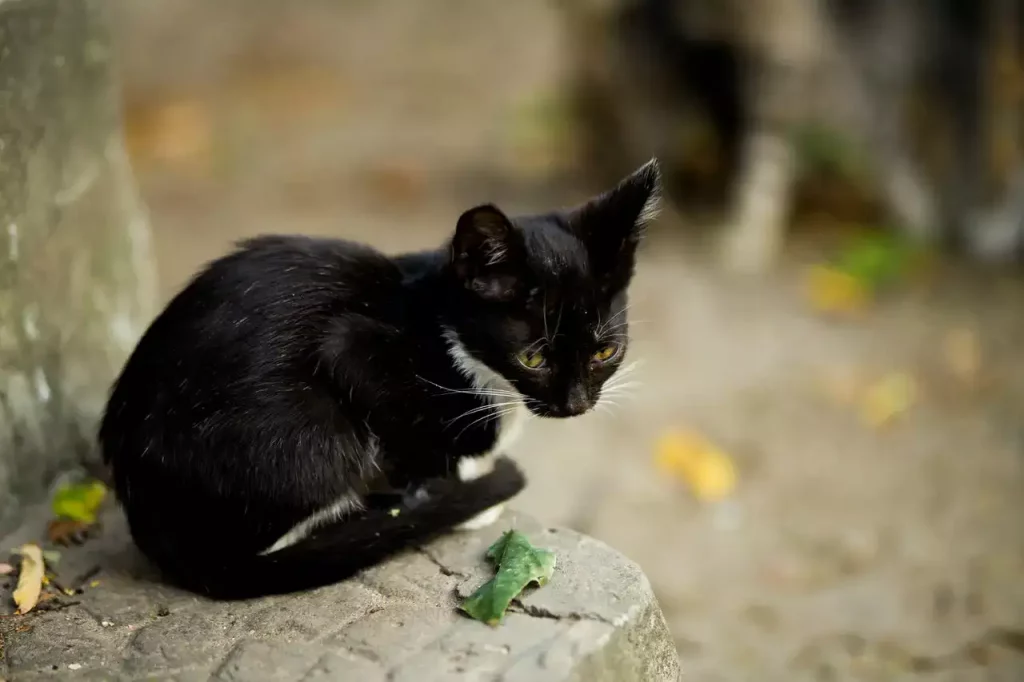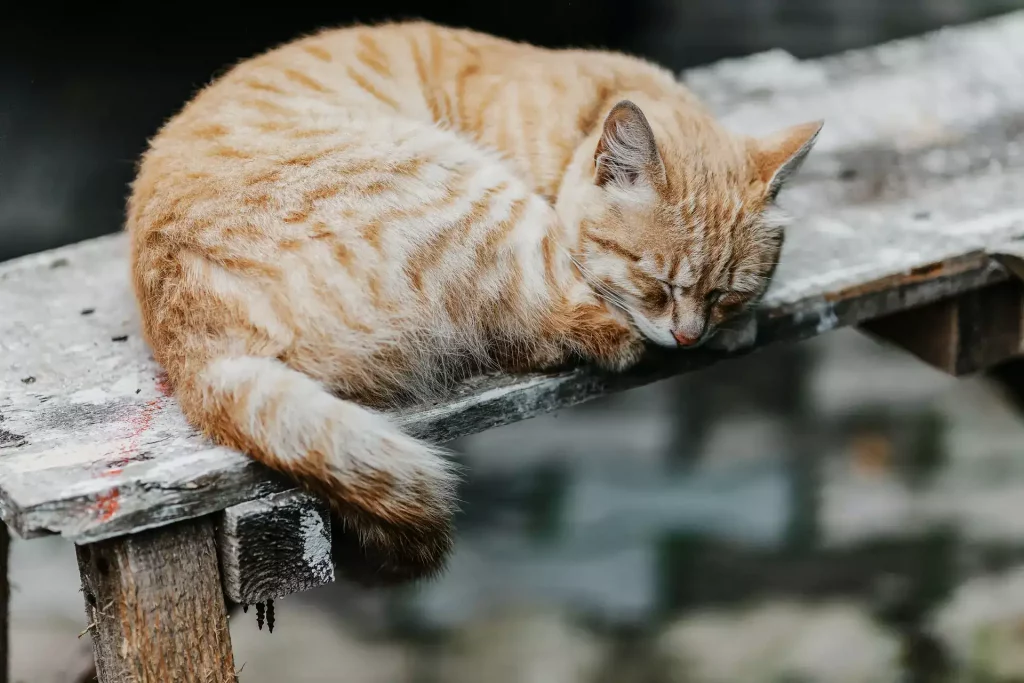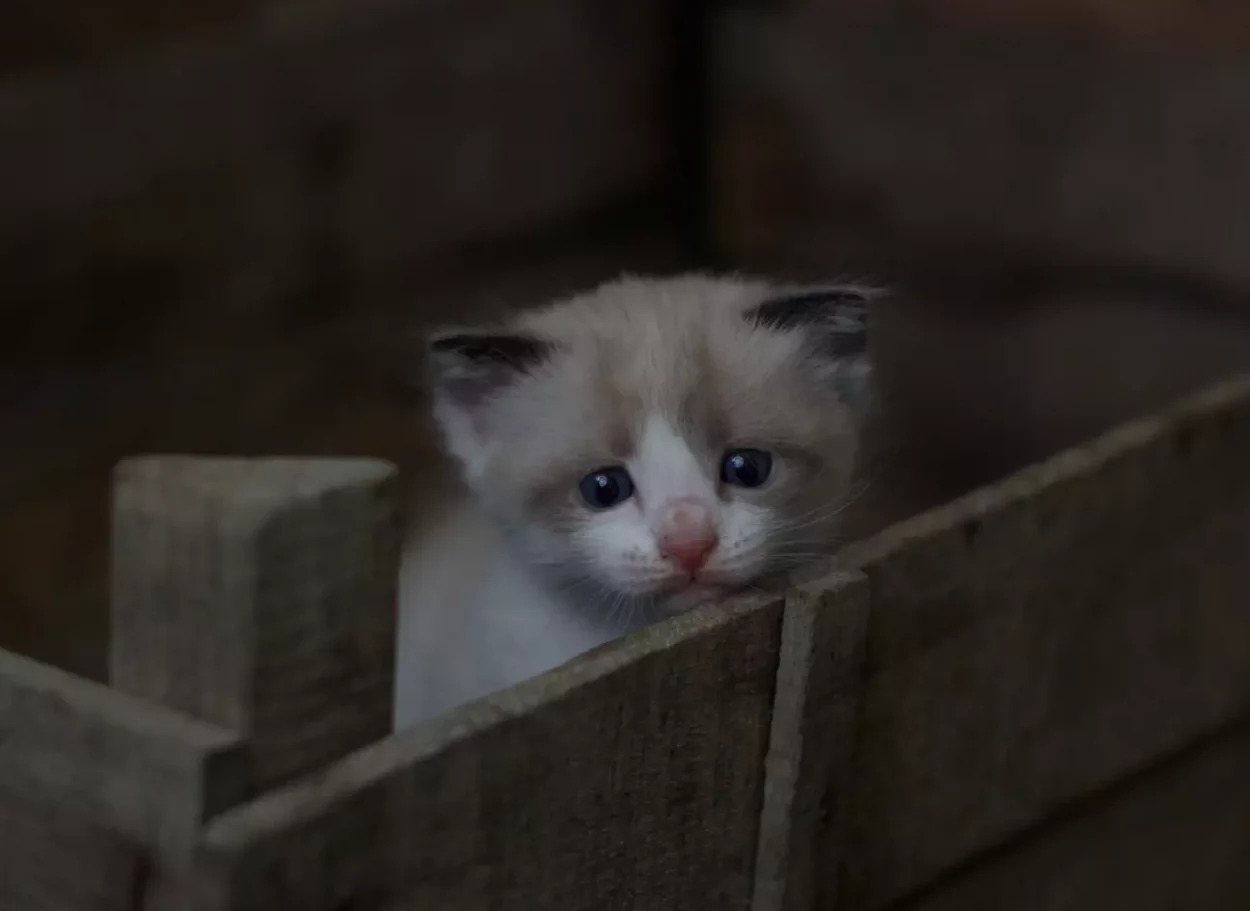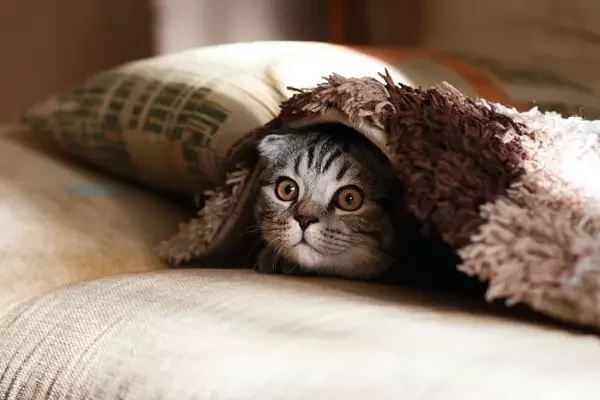Many people have been there.
Your cat seems to be under the weather and not himself.
But when does it actually border on lethargy and what could your cat suffer from?
If your cat is lethargic but still eating and drinking, that’s a very non-specific symptom and could point towards a host of issues, all of which need to be taken care of.
For some cases of lethargic cats, there are definitely home remedies while others require a vet visit, let’s shed a bit of light on this topic.
My Cat Is Lethargic But Eating And Drinking
If your cat is lethargic but eating and drinking, common causes include overexercise, boredom, fear, poisoning, inflammation, or medication, as well as mental or chronic disorders.
The fact that your cat is lethargic but still eats and drinks is a good sign since that’ll avoid an emergency vet visit for nutrient deficiency.
However, some cases still need to be treated pretty quickly while others just depend on easily changeable external factors (such as exercise).
Also, the circumstances and other symptoms can be crucial.
Here are some signs that point towards certain causes (it’s not an exact science though and a vet visit might still be required to rule out other issues).
- Have you recently changed the exercise regimen? Overexercise or boredom come to mind.
- Recent rescue or traumatic event? Fear is common.
- Right after a walk or after devouring bad food? Check for poisoning
- Visible injury? Could inficate infection or inflammation
- Recently put on meds? That might the cause

Also, is your cat suffering from any of these symptoms as well?
- Heavy breathing
- Shivering
- Shaking
- Disorientation
Overexcerise
Although the opposite is more common, it might just be that you ramped up your cat’s exercise regime too quickly.
If you’ve gone on an extremely long hike or just introduced a new activity such as biking or swimming, your cat might just be tired from that.
While this kind of acute overexercise is possible, it’s also possible that the exercise regimen has been too much for your cat to keep up with for weeks or months already.
If nothing has changed and you’re reasonably exercising your cat (which is essential), this is one of the unlikely causes of your cat’s lethargy.
Boredom
If your cat is lethargic but still eating and drinking, it might very well be that your cat is bored out of his mind, perhaps eventually leading to depression or behavioral issues.
Some cat owners assume it’s just certain breeds that need mental and physical exercise but that’s plain wrong.
What’s true is that some breeds have higher exercise needs but all need to be kept busy to avoid boredom which can resemble lethargy.
Boredom can also lead to hyperactivity inside the house or overexcitement outside but both extremes are undesirable and should be looked into.
Fear Or Trauma
Loud noises, negative experiences, unfamiliar surfaces, even a new environment can make some cats fearful, especially if you’ve recently rescued a cat.
You’ll be the best judge of what might’ve led to that lethargy in your cat.
If your cat started to seem lethargic but is still eating and drinking recently, you should try to recall the day it started to figure it out.
It might only be a matter of time for your cat to stop drinking or eating altogether if the lethargy isn’t addressed.
Check this to see how you can build confidence in your cat and how to handle a rescue cat’s fear if you’ve recently brought one home.
Poisoning
Food poisoning is more common than you might think, considering there are a lot of foods your cat shouldn’t dig into since they’re toxic.
Your cat could also just feel a bit down because he stuffed his face with that yummy dinner where the spices alone suffice to upset a cat’s stomach to the point where they seem to be lethargic and sick but still drink, perhaps even more so to compensate.
If your cat picked something up while walking outside and doesn’t seem like himself anymore, keep poisoning in mind and consult a vet asap.
Infection or Inflammation
Inflammation can be caused by an infection which in turn could be the result of an injury.
You don’t see any visible injuries? Then your vet might order bloodwork to be done.
This is often paired with a fever and can definitely be the cause why your cat is acting lethargic.
Medication
Your cat was put on medication recently and now he’s lethargic but still eats and drinks? That switch could be the cause.
Consult your vet to see if this behavior change is a known side effect and if the meds aren’t crucial at the moment, you can try banning them from your cat’s daily to-do list and see if he improves and becomes more active again.
Old Age, Disorientation, Depression
Cats who just get older become calmer and calmer and if they’re lethargic but still drink and eat normally, everything might be okay with your cat’s health charts.
Disorientation, restlessnes, or paranoia are serious symptoms and should be addressed.
If your senior cat is not only lethargic but stares at random points inside the house, is disoriented and circles a lot, and so on you might look into feline dementia.

Diabetes, Heart Disease, Immune System Disorders, Cancer
The more serious causes for your cat’s lethargy include diabetes, heart disease, immune system disorders and cancer.
While you may already know about your cat’s diabetes or immune disorders, there might be uncovered health issues and only the vet can help you determine if your cat might suffer from any of these conditions.
While there’s no reason to be on high alert just because your cat seems to not feel well for a day, you should definitely look into it if your cat behaves the same for the next day without any apparent reason.
My Cat Is Lethargic And Not Himself
If your cat is lethargic and not himself, you should look into common causes such as exercise issues, fear, poisoning, nutritional deficiency, or neurological disorders.
Neurological reasons are quite common causes for your cat not feeling like himself.
These causes mostly affect senior cats (hence why feline dementia plays a big role) but cats of all breeds and ages can be affected too.
Behaviors that point towards neurological disorders include a lot of circling behavior or paranoid behavior where your cat also seems to see things inside the house.
My Cat Seems Sad And Tired
Cats who seem sad and tired can suffer from depression, neurological disorders, or just boredom or old age.
Everybody has bad days and good days but if your cat acts lethargic or overly sad, you should ask your vet.
In mild cases, it’s just boredom or your cat might have slight separation anxiety if one of his favorite people or cats just left.
While cats tend to get calmer with old age, it’s not common that they suddenly turn all sad and tired.
In general, you’re the best judge of your cat’s behavior and it’s important to put things into perspective.
Mellow cats have a totally different starting point compared to an active, excited feline making a one-eighty turn to becoming sad, tired, or even lethargic.
If your cat suffers from a diagnosed condition already, this might be a particularly bad day for him.
When Should I Be Concerned About My Cat Being Lethargic?
You should be concerned about your cat being lethargic if he doesn’t react to stimuli and behaves weirdly for 24 hours or more while you should monitor the situation even more closely if he quits drinking and eating.
If you’re unsure, go the safe route and ask your vet.
Monitor your cat’s behavior closely, make sure they’re drinking and eating and get some exercise in and try to engage them but avoid disturbing when they’re resting.



Leave a Comment